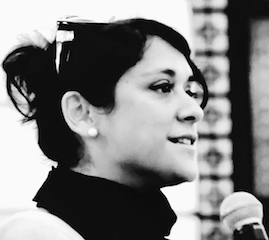Dr. Lara Srivastava
KurzweilAI.net reported that the UN was predicting an “internet of things”. The site went on to say
“Changes brought about by the Internet will be dwarfed by those prompted by the networking of everyday objects, says a report by a UN body. The study looks at how the use of electronic tags and sensors could create an ‘internet of things’. The report, entitled The Internet of Things, by the International Telecommunications Union was released at the UN’s World Summit on the Information Society in Tunis. Radio Frequency Identification (RFID), sensors, robotics and nanotechnology will make processing power increasingly available in smaller and smaller packages so that networked computing dissolves into the fabric of things around us.”
The lead author for this report was Lara Srivastava.
Lara Srivastava, Ph.D. is currently Head of Bridging the Gap and Emerging Technologies at the UN’s International Telecommunication Union. She is a futurist and multi-disciplinary thinker, holding a Master’s in literature, a Juris Doctor (JD) in tech law, an MSc in Technology Policy (ICT in the banking industry), and Ph.D. in the Internet of Things. She is also a qualified Canadian lawyer.
She led the creation and implementation of the first Technology and Policy Foresight programme at the UN agency for ICT, the ITU. She was the lead author and editor for the first international publication of its kind on the Internet of Things, as far back as 2005: this report was ahead of its time and not only covered key technological and market trends but also focused on the important socio-ethical consequences to come.
Lara has also worked with the CRTC, Canada’s national regulator, and the World Bank, and has consulted for the European Commission and various industry players. She has worked in internet start-ups in the ASP and digital identity spaces. The undergraduate and post-graduate courses she has taught range from media and technology law to social media use and film theory (e.g. the rise of the tech-noir genre in the new digital age).
She was editor of the 2010 Telecommunication Regulation Handbook, a key one-stop regulatory reference guide for the telecoms industry and has published widely on topics ranging from regulation and standardization in the tech sector to the impact of technology on society and human behavior.
Lara’s Ph.D. work showcased a decision-support (predictive) software and IoT platform in smart homes for the elderly.
Read her LinkedIn profile and her ResearchGate profile. Follow her X feed.
